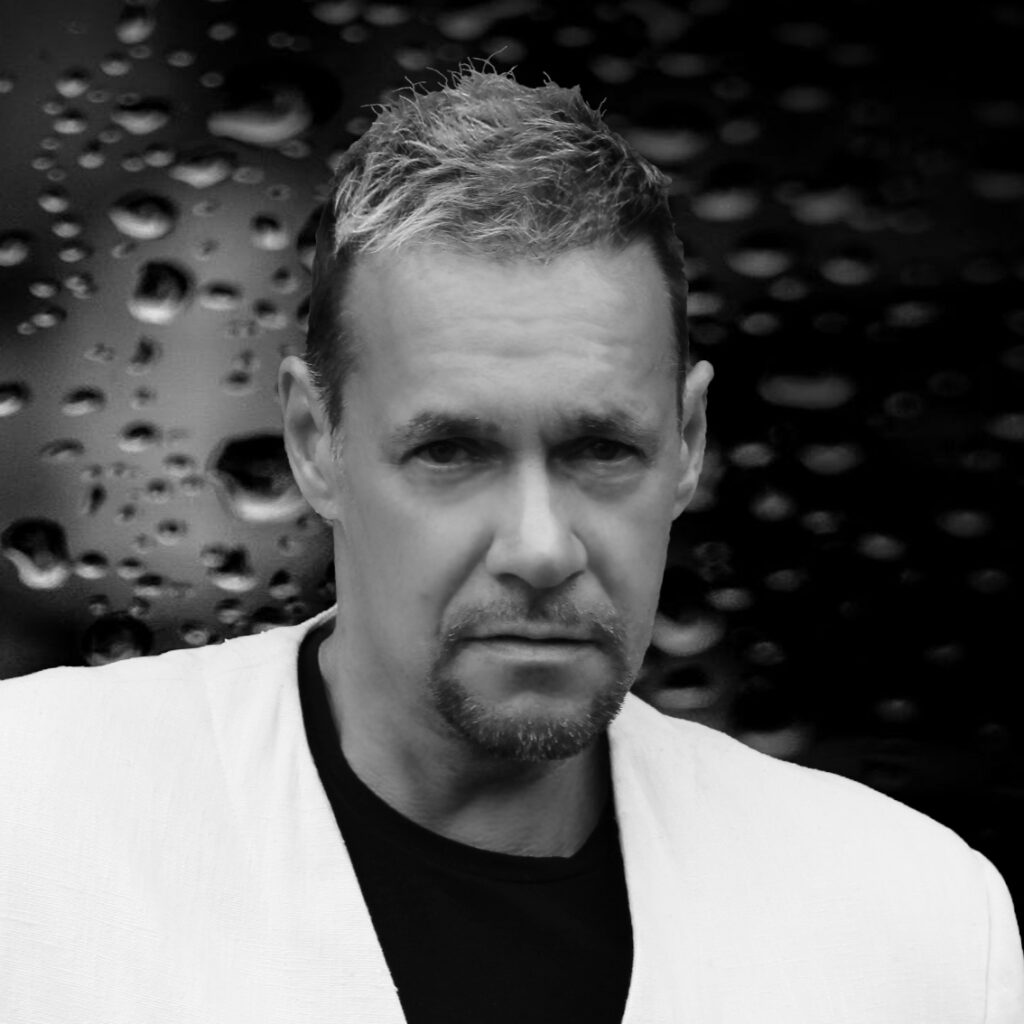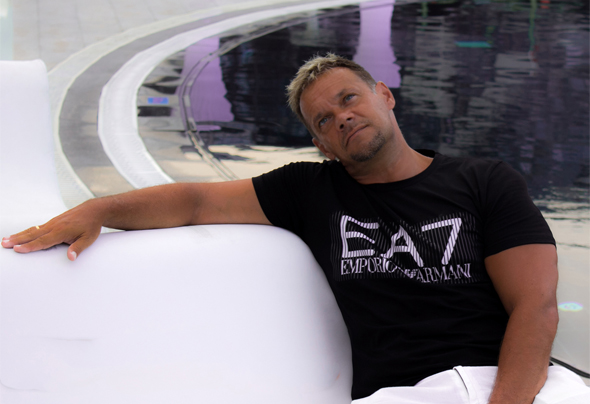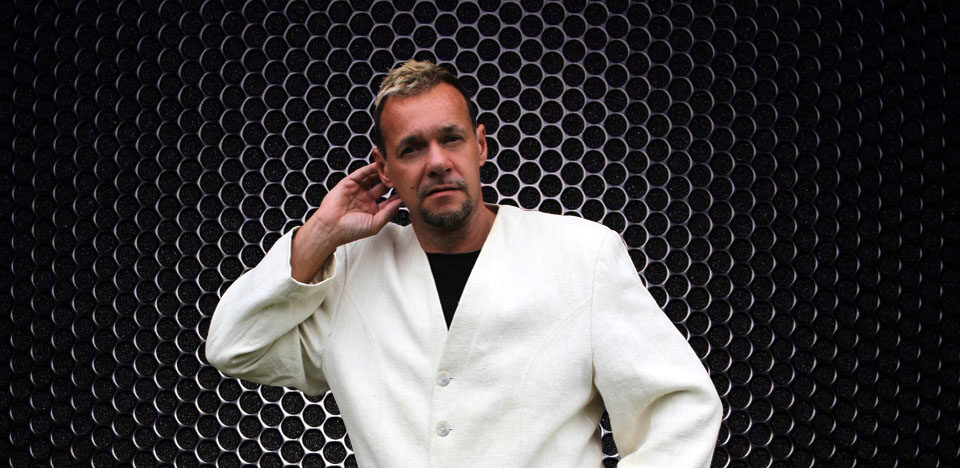Early in his career, Jimmy de la Mar worked as a DJ. He founded JGM Production at the age of 30, producing and writing music for various artists. He adopted from the music scene in 2005. He didn’t return to music until 2013, and since then he has produced house music. Jimmy de la Mar has put out one album and 21 songs. His songs can be found on more than 100 compilations. Check out the exclusive interview below:

1. Can you tell us a bit about where you come from and how it all got started?
JIMMY DE LA MAR: I come from [A1] Berlin. Berlin has many clubs and was probably the capital of techno. We had the world famous Love Parade here for many years. That’s why I love house music. I first played in a school band. Had some success with the group Glenn Copulation and then, after the band broke up, started a recording studio and production company with our singer. We produced young unknown artists and tried to get them on labels. At that time, music download sites were just coming into fashion. We had a lot of number one hits worldwide, but we didn’t earn anything because we had to provide the songs for free. At some point it was no longer economically viable and I sold everything in 2005. In 2014 I regained the joy of songwriting. This time I wrote only for myself and what I like. This has resulted in 24 songs and 2 albums to date.
2. Did you have any formal training or are you self-taught?
JIMMY DE LA MAR: I learned to play guitar [A2] and taught myself keyboard. I also have a degree in music business.
3. Who were your first and strongest musical influences and why the name ‘JIMMY DE LA MAR’?
JIMMY DE LA MAR: Actually, I love R&B. I grew up listening to Kool and the Gang, Chic, the Whispers and so on. Then came Eurodance and Techno. You can find all these music styles in my music. House and dance have a lot of subgenres and I also just don’t want to commit to one or two genres. Every song is somehow different and fits sometimes to Vocal House, then to Commercial House, EDM or Disco House. I never want my fans to know what style the next song is. All my songs should be a mix of many styles. But all of my songs have one thing in common, the love for melodies. In every song you will always find several melodies. They breathe life into songs and if you like that, you usually like my songs.
4. What do you feel are the key elements in your music that should resonate with listeners, and how would you personally describe your sound?
JIMMY DE LA MAR: It is the different styles, melodies and different singers. I sometimes tend to bring too many different elements together. Most productions have more than 70 sound tracks. My sound engineer always goes crazy when he gets a new song from me. Then he has to try to arrange everything so that you can hear everything. But it’s always important to me that the song is danceable and has a great chorus.

5. Do you think is it important for fans of your music to understand the real story and message driving each of your songs, or do you think everyone should be free to interpret your songs in their own personal way?
JIMMY DE LA MAR: Since I don’t have a message in my music, I’m sure my fans don’t worry about what he’s trying to tell me. My music should entertain and inspire to sing along or dance. You should just have a good time listening to my music. If I can do that, then that’s worth more to me than any statement. I think that you should not take yourself so important. What right do I have to tell others what they should or should not do. For me music is entertainment, but I also respect every other opinion. Everyone has to find their own way to happiness.
6. On the contrary, what would you consider a successful, proud or significant point in your life or music career so far?
JIMMY DE LA MAR: When I heard my song on the radio for the first time. And a performance in the Berlin Olympia Stadium in front of 55000 spectators. An artist of mine has written a song for the home club, which we had produced. For the presentation of the song, before the kickoff, I played with my guitar in his band. That was really a great experience.[A4]
7. For most artists, originality is first preceded by a phase of learning and, often, emulating others. What was this like for you? How would you describe your own development as an artist and music maker, and the transition towards your own style, which is known as EDM?
JIMMY DE LA MAR:
Well, I had enough time to learn. As a DJ, in the band and in my time as a producer. I’ve worked with many musicians in my life and each had a different perspective on music. You can learn a lot from others. But what I have never done is copy others. It’s important to find your own style. Whether it’s good or not good doesn’t matter. The important thing is that your music has a recognizable value. If you succeed in that, you have achieved a lot.
8. What’s your view on the role and function of music as political, cultural, spiritual, and/or social vehicles – and do you try and affront any of these themes in your work, or are you purely interested in music as an expression of technical artistry, personal narrative, and entertainment?
JIMMY DE LA MAR:
You know, there are artists who want to tell the world something or point out political grievances in their music. I think that’s great, but that was never my motivation to make music. It sounds a bit naive, but I just want to distract people from their problems for a short period of time. By singing along to the song, dancing or just tapping their foot. For example, I’m passionate about singing while driving. It totally relaxes me. It’s the same with dancing. Once I’m on the dance floor, I forget about time and space, and that’s exactly what I want to achieve with my music. No more and no less.
9. Do you feel that your music is giving you back just as much fulfillment as the amount of work you are putting into it or are you expecting something more, or different in the future?
JIMMY DE LA MAR: Each song is like its own child. You put a lot of time and heart into it. When the song is released, you hope that many people will like it. But even if it is not so well received, it remains your baby. For me there is nothing better than to see where my songs are heard all over the world. My last song was heard in 78 countries. I don’t have an audience of a million, but I don’t care about that. I’m really happy about every single person who likes my music. I am most happy about the people who write to me on Facebook, Instagram or Tiktok. I always write back and with some I have already built up a certain friendship.
10. Could you describe your creative processes? How do usually start, and go about shaping ideas into a completed song? Do you usually start with a tune, a beat, or a narrative in your head? And do you collaborate with others in this process?
JIMMY DE LA MAR: It is usually a melody or harmonies. Then I look for the right beat. After that comes the structure of the song. When that’s all done, comes the hardest part, the vocal melody and lyrics. Then all the other instruments are recorded. I usually sit on a song for about 6 weeks until it’s finished.
11. What has been the most difficult thing you’ve had to endure in your life or music career so far?
JIMMY DE LA MAR: The many rejections from record companies and A&R[A3] . In my time as a producer, I had a lot to do with record companies and A&R. Then a young A&R sat across from me and said to me, I don’t hear the hit. Or at that time Hip Hop in Germany is out. Well, they were both wrong and it shows me that record companies and their employees usually have no idea what the next hit will be.
12. With social media having a heavy impact on our lives and the music business in general, how do you handle criticism, haters, and/or naysayers in general? Is it something you pay attention to, or simply ignore?
JIMMY DE LA MAR: I must admit that I encounter few rabble-rousers or bad-makers in the social networks that concern my music. If I do, I accept their opinion, because everyone is entitled to it. It is different in the private sphere. I like to write my opinion and sometimes there are people who are quickly offended. If something like that happens to me, I try to counter it with irony. With irony I’m not so angry about it.
13. Creative work in a studio or home environment, or interaction with a live audience? Which of these two options excites you most, and why?
JIMMY DE LA MAR: After all, I only worked in the studio for years. That was also very nice, because you always had a lot to do with other musicians. Today I love working from home. I took some of my former studio equipment with me and now I produce in my house. This makes me extremely flexible. If I have good ideas, I can go straight to the PC and record the thing. Same thing, if you have a block, you get up and go into the garden or just do something else.
KEEP IN TOUCH:
FACEBOOK | INSTAGRAM | SPOTIFY | WEBSITE | YOUTUBE

